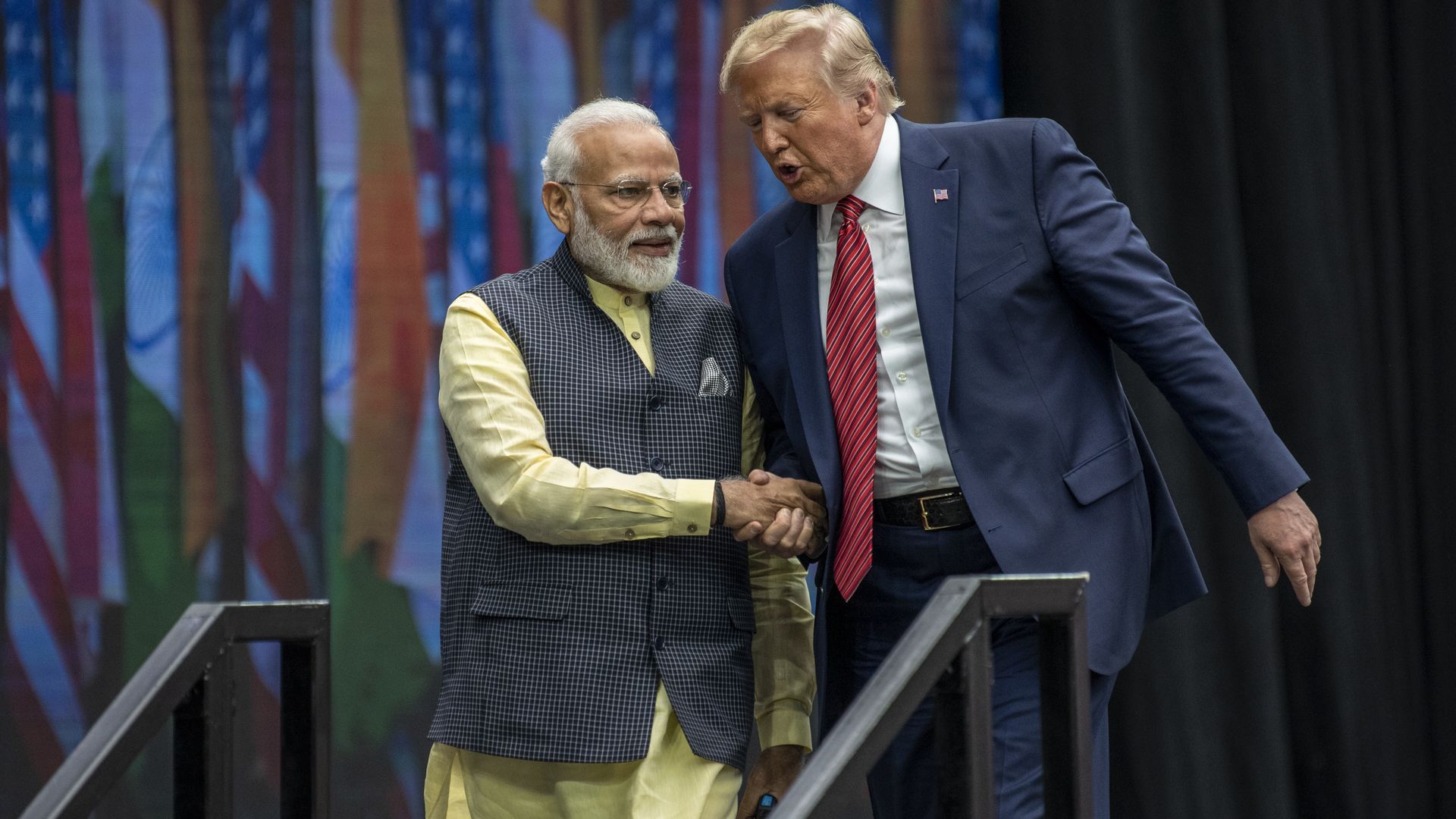Senators concerned India's "secular character" is under threat
Add Axios as your preferred source to
see more of our stories on Google.

Trump and Modi in Houston. Photo: Sergio Flores/Getty Images
A bipartisan group of senators wrote to Secretary of State Mike Pompeo Wednesday expressing concerns and seeking State Department assessments on India's crackdown in Kashmir and controversial citizenship law.
Why it matters: President Trump is heading to India later this month. Rather than pressure Prime Minister Narendra Modi on the Kashmir crackdown during their last appearance together, in Houston, Trump praised him.
- “I’m expecting that this is essentially going to provide a similar kind of air cover for Modi,” Milan Vaishnav of the Carnegie Endowment says of the visit.
- Trump told reporters today: “We will have millions and millions of people. He thinks we will have 5–7 million people just from the airport to the new stadium."
What they're saying: The senators — which include Lindsey Graham (R-S.C.), Todd Young (R-Ind.), Chris Van Hollen (D-Md.) and Dick Durbin (D-Ill.) — write that Modi's steps "threaten the rights of certain religious minorities and the secular character of the state."
They described the events in Jammu and Kashmir, India's only Muslim-majority state, as "troubling."
"More than six months after Indian Prime Minister Narendra Modi’s government unilaterally revoked the autonomy of Jammu and Kashmir, the government continues to block most internet in the region. India has now imposed the longest-ever internet shut down by a democracy, disrupting access to medical care, business, and education for seven million people. Hundreds of Kashmiris remain in 'preventive detention,' including key political figures."
The letter also mentions the Citizenship Amendment Act, which would give religious minorities from India's neighbors a fast-track to citizenship — but not Muslims.
The senators asked Pompeo for assessments on:
- The number of political detainees in Kashmir, and whether they had been subjected to "torture or other forms of mistreatment."
- Restrictions on internet and cell service in Kashmir.
- Restrictions on access for foreign diplomats, journalists and observers in Kashmir.
- Restrictions on religious freedom in Kashmir.
- The number of people — in particular religious or ethnic minorities — who could be rendered stateless, deported or locked up as a result of the citizenship law.
- Any "excessive use of force by Indian authorities" against people protesting that law.
The big picture: Modi and his Bharatiya Janata Party dominate Indian politics and have taken swift action on their Hindu nationalist agenda since winning a landslide election last May.
- That has led to fierce backlash on the streets and in India's elite universities as fears grow that India's status as a secular democracy is under threat.
Go deeper: Trump to visit India as U.S. weighs new "special relationship"
